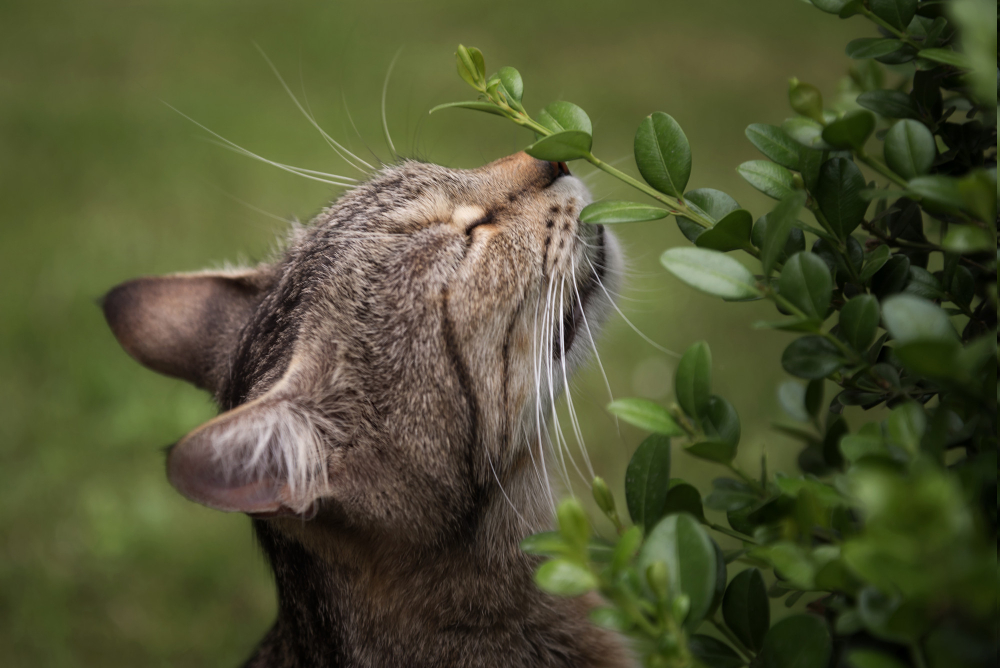When it comes to herbs for pets, just as with people, there is a lot of conflicting and often unreliable information surfing around the Web. Additionally, herbs that may be safe for dogs are often not safe for cats and vice versa. The best advice you can follow when it comes to giving a pet herbs is this: ask your veterinarian.
Unless you’ve received medical guidance from your veterinarian about which herb to give, for what purpose, how much, and how often, do not give it to your pet. You could end up with a tragic pet poisoning.
One thing you can do to keep your dog, cat or other curious pet safe from toxic herbs is to make your home “herb friendly.” The resources listed below provide guidance on pet-safe herbs for the kitchen, home, and outdoor living areas. Additionally, you’ll find resources for what to do if you suspect that your pet has ingested and is having a toxic reaction to an herb (or any other toxin).
Pets and Herbs Safety Resources
Leaf and Paw lists herbs that are used for cooking or that you may have in the home/garden. Indications are listed for safe and/or toxic for dogs and cats. https://leafandpaw.com/2017/11/22/the-pet-safe-kitchen-herbs/
Herbal Academy “Pet-Safe Yard and Garden Tips, Herbs and Plants: https://theherbalacademy.com/best-worst-plants-for-pets/
Modern Dog Magazine: https://moderndogmagazine.com/gallery/herbs-are-good-dogs?slide=1 “Herbs that are Good for Dogs”
ASPCA “Toxic and Non-toxic Plants: https://www.aspca.org/pet-care/animal-poison-control/toxic-and-non-toxic-plants
Pet Poisoning Emergency Preparation
The ASPCA Animal Poison Control Center (APCC) is your best resource for any animal poison-related emergency, 24 hours a day, 365 days a year. If you think your pet has ingested a potentially poisonous substance, call (888) 426-4435. A consultation fee may apply.
Emergency Preparedness Resources for Pet Poisoning, including how to prepare a pet emergency kit and much more can be found here: https://www.aspca.org/pet-care/animal-poison-control

